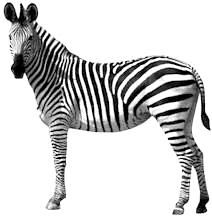
Stress
What If Stress Does Not Exist?
A healthy relationship with fear could alleviate anxiety and more
Posted January 30, 2016

Stress is a curious disorder. Since it was first coined by Dr. Hans Selye in1936, we humans have discovered cures for polio and tuberculosis and we've made significant strides in treating devastating illnesses such as cancer and AIDS. Yet, I cannot find many people who believe that we have cured - or even greatly alleviated - stress, in spite of our enormous efforts to do so.
What if the reason we cannot cure stress is because stress does not exist?
I began to ponder this question as I observed and read numerous interviews with highly accomplished people in business, the arts, and in sports. What intrigued me most was how seldom I heard any of them use the word “stress.” Instead, most used a different term to describe the same physical “symptoms” we all experience when we perceive that we're under duress: shortness of breath, muscle tension, neck and low back pain, trouble sleeping, change in appetite, loss of interest in usual pleasures, crying, etc. When we experience these symptoms, individually or all at once, one or more parts of the body is signaling us that we have exceeded the body’s tolerance for what we want it to accomplish.
While many of us perceive these feelings and label them "stress," successful people consistently use a different word to describe their discomfort. The word they use is fear (or it's alternates, scared or afraid).
Before I share with you why successful people prefer these words, let me provide a few examples:
When you are running an institution like this, you are always scared at first. You’re afraid you’ll break it. People don’t think about leaders this way, but it’s true. Everyone whose running something goes home at night and wrestles with the same fear. Am I going to be the one who blows this place up. ~Jack Welch, former CEO, General Electric
All adventures, especially into new territory, are scary. ~Sally Ride, Astronaut
I’m coming from a place of acting, so you’re never quite sure if you’re going to get the crew to even be on your side, and you always have this great fear that they will discover that you’re an impostor and that you have no business being there. ~George Clooney, Actor
One of my favorite examples of the prevalence of the word "fear" in the daily vocabulary of successful people comes from Ed Catmull's insightful book on managing people, Creativity, Inc. You may not recognize the author, but I expect you're familiar with his work. Catmull was the visionary who dreamed of using computers technology to create full-length animated movies. With the help of George Lucas and Steve Jobs, his dream became the film studio Pixar. In Catmull's book, I tallied his use of three key words: stress, anxiety, and fear. The results were telling. "Stress" was used once, "anxiety" was used once, and the word "fear" was used eighty seven times!
So why would these and so many other successful people prefer the word fear to stress?
The answer was so obvious that it took me months to discover the thing that children already know. What words do children use to describe their emotional pain? They are direct. Children talk about being scared or afraid. Have you ever heard a child say “I'm anxious about the boogey man” or “I'm stressed because the teacher is mean”? Of course not! Children know they live in a world they can't control and they know that fear can show up at any time. So what kind of movies do they stand in line see? Scary movies of course. Children have a healthy relationship with fear and they see fear as something they have to engage and overcome. By the time we become adults, however, most of us no longer experience fear as a natural part of life, but instead as something we get angry at when it shows up. As a result, instead of welcoming it, we want to avoid or banish it.
Successful people, on the other hand, assume that whenever they are doing something important, fear will show up. They know that the “symptoms” of fear, which we are now calling a "dis-ease," are actually our bodies' gift to us to let us know that something is challenging us and needs our attention. When we become afraid or angry in response to fear, we create anxiety...or a stress disorder.
In my next blog, I will make the case that our human bodies - like all other mammals - have one specific, healthy response to fear. And, if we adhere to this response, we can quiet our "stress response" and regain the creativity and flexibility that lead to success.

